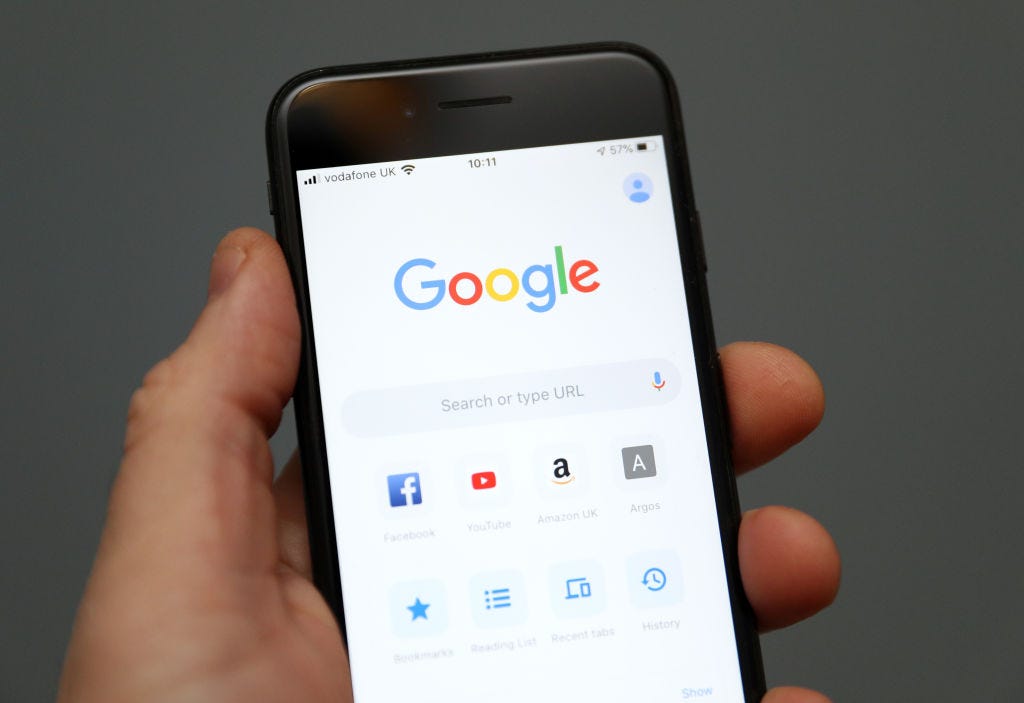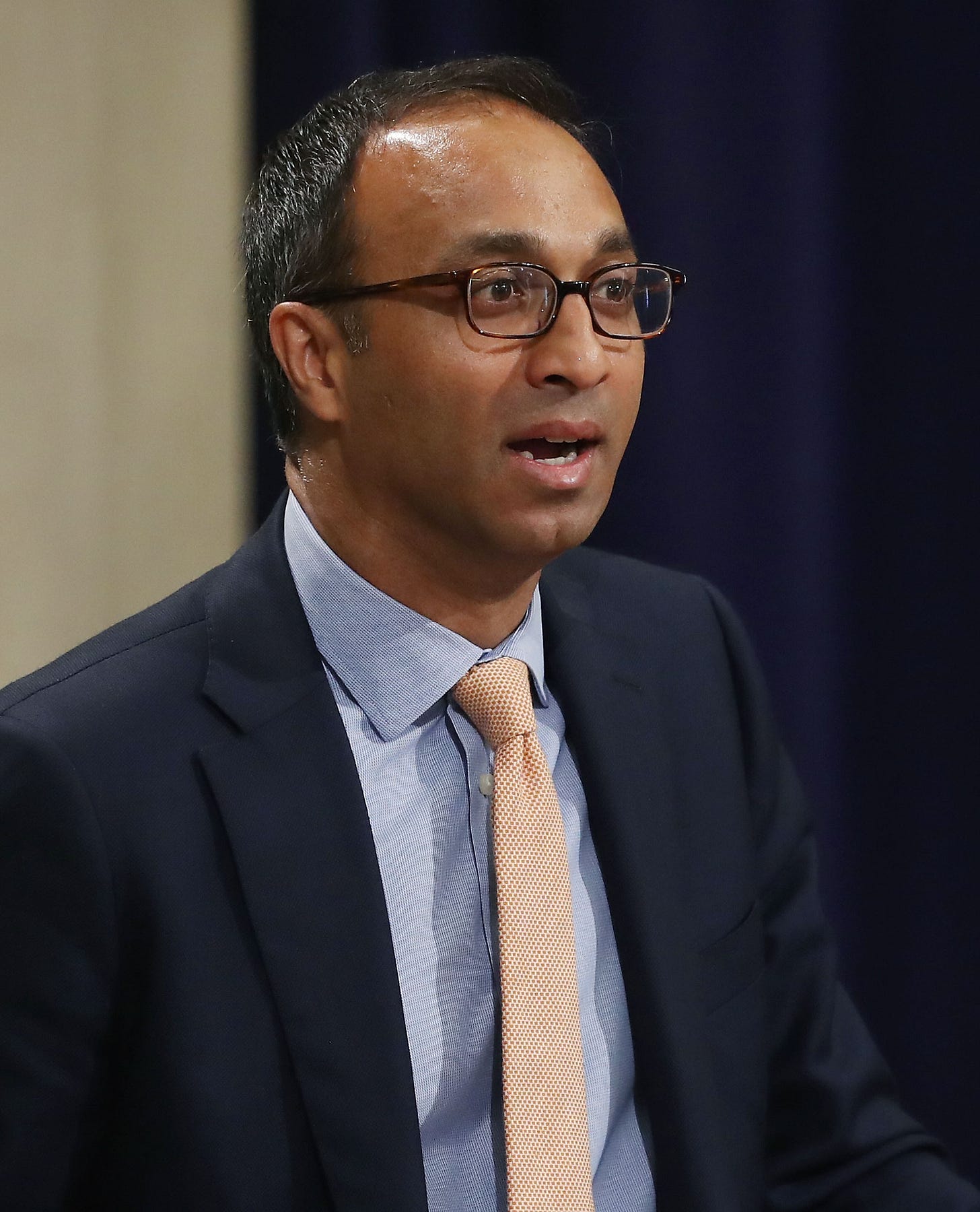The Google Monopoly Trial as a Morality Play
Here's what I'll be paying attention to as the trial gets underway

The landmark antitrust trial against Google begins tomorrow — and as Matt explained in his announcement post for Big Tech on Trial, I am excited to provide you daily coverage of the proceedings directly from the courtroom.
I am eager to hear from you about the kind of coverage and analysis you want to receive as this trial unfolds. You can reach out to me with thoughts, questions, and feedback at bigtechontrial@substack.com. I’ll also be on Twitter during the trial — you can follow me @BigTechOnTrial.
There’s been tons of coverage of the case from all sorts of outlets, so this post isn’t really meant to be a traditional preview of the trial. If you’re interested in reading previews of the trial from a variety of perspectives, I’d recommend checking out these articles from Matt, The Washington Post, and yes even Google.
Instead, I thought I would just share a couple of the bigger themes and issues I am going to be focusing on as the trial kicks off tomorrow.
The Trial as a Morality Play
“In our country, every trial is really two things. It is a search for truth and it is a morality play. And when you have an antitrust trial…those two things are very interesting to mesh… [T]he search for truth particularly in an antitrust case is inherently difficult…and the morality play has to go on at a very high level of generality….By its very nature, it drives you from the data to the dramatic.”
Those were the words of the famed and controversial trial lawyer David Boies in 2008 reflecting on the United State’s landmark case against Microsoft, for which he was brought on as the DOJ’s lead lawyer. Twenty-five years later, the Microsoft trial remains the most recent blueprint for success the DOJ has in a monopoly case against a tech giant.
So what kind of morality plays will we see? Over and above the thicket of technical details and complicated legal questions, what overarching narrative will the DOJ tell? Will the plaintiff States unify their story with the DOJ for their own separate claim? And how will Google respond with its own narrative?
We have already gotten some idea of the answers to these questions through the parties’ pre-trial filings. But the opening statements we hear tomorrow will bring these competing morality plays into focus. Each party will have to choose the strongest themes on which they want to focus. And because the final ruling will be made by Judge Amit Mehta — a singular person without any specialized economic training — this case will come down to the morality play as much as it does the data.
The Evidence That No Longer Exists
Perhaps just as important as the evidence that will be presented at trial is the evidence that no longer exists due to Google’s alleged use of “history-off” chats for business communications that should have been turned over to the government as part of the litigation.
Earlier this year, the DOJ moved for sanctions against Google due to its failure to preserve these chats for discovery. Judge Mehta has yet to issue a final ruling on that motion, but Google has been sanctioned for the same kind of conduct in another antitrust case in which it is being sued by Epic Games. In that case, Judge James Donato found that “Google intended to subvert the discovery process, and that Chat evidence was ‘lost with the intent to prevent its use in litigation’ and ‘with the intent to deprive another party of the information’s use in the litigation.’”
While we will never know what the deleted messages would have shown, the chats may still play a significant role in the trial. In the final pre-trial hearing on September 1, Judge Mehta recognized that the “spoliation” of the chats was an “outstanding issue” in the case. Over Google’s objection, Judge Mehta said he would not stop the government from asking fact witnesses questions about the chats and spoliation.
The government will have to make a strategic call about how much focus to put on the deleted chats. Placing too much emphasis on the deleted chats may suggest a lack of confidence in the evidence they actually have. On the other hand, the deleted chats damage Google’s credibility — and in a complex case like this, going after Google’s credibility may well be the most powerful weapon in the government’s arsenal.1
How Much will the Public Get to See
One final question I’ll be paying attention to is just how much of the trial plays out in the public eye.
Citing federal judicial policy and the D.C. District Court’s local rules, Judge Mehta denied a third-party motion to broadcast a publicly accessible audio feed of the trial — although a public access line will be made available for the parties’ opening statements.
Judge Mehta has also largely left it up to the parties to work out amongst themselves what portions of exhibits should be redacted and what parts of testimony will take place in a closed courtroom. He has communicated that there is a presumption of public access to judicial records, but he’s also expressed a willingness to defer to Google’s own determinations about what should be sealed.
Here’s what Judge Mehta had to say at one pre-trial hearing in August where the main topic of discussion was how to go about redacting confidential information that would be brought up at trial: “Look, I’m an Article III trial judge, okay? I am not a businessperson. I am not anyone that understands the industry and the markets in the way that you do. And so I take seriously when companies are telling me that if this gets disclosed, it’s going to cause competitive harm. And I think it behooves me to be somewhat conservative in thinking about that issue, because, you know, I can’t see around every corner.”
We can speculate about whether Judge Mehta’s deference to Google on confidentiality issues tells us anything more broadly about his view of Google and the case at large. In theory, it shouldn’t have any effect on the legal outcome of the case, since Judge Mehta will still obviously have access to all the evidence.
But this case will be closely watched by policymakers and legislators as one of the first major challenges against the growing dominance of Big Tech. Even if Google wins at trial, the information that comes out at trial could serve as the impetus for passing legislation that prevents Google from continuing to engage in several of its practices that have been challenged by critics and antitrust enforcers. So in addition to reporting on the evidence that does come out in court, I’ll be paying attention to the holes in information the public has due to redactions and sealed testimony.
This is what David Boies said about the importance of credibility in complex cases like US v. Microsoft: “[C]redibility matters the most in the most complex, science-based cases, because it is in those cases that the judge … is less capable of deciding for themselves whether what the witness is saying makes sense or not.”




Looking forward to this, but you really absolutely need to use another color scheme, this one is very unfriendly to the eye.
White text on beige background is totally illegible